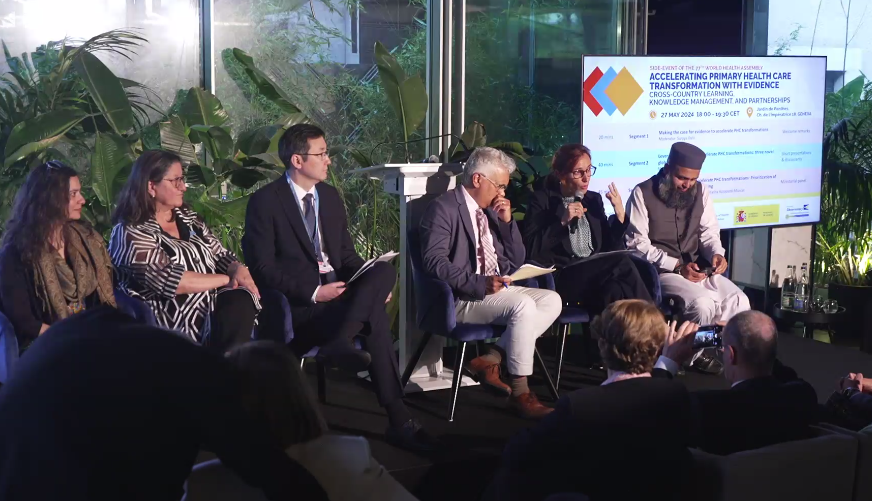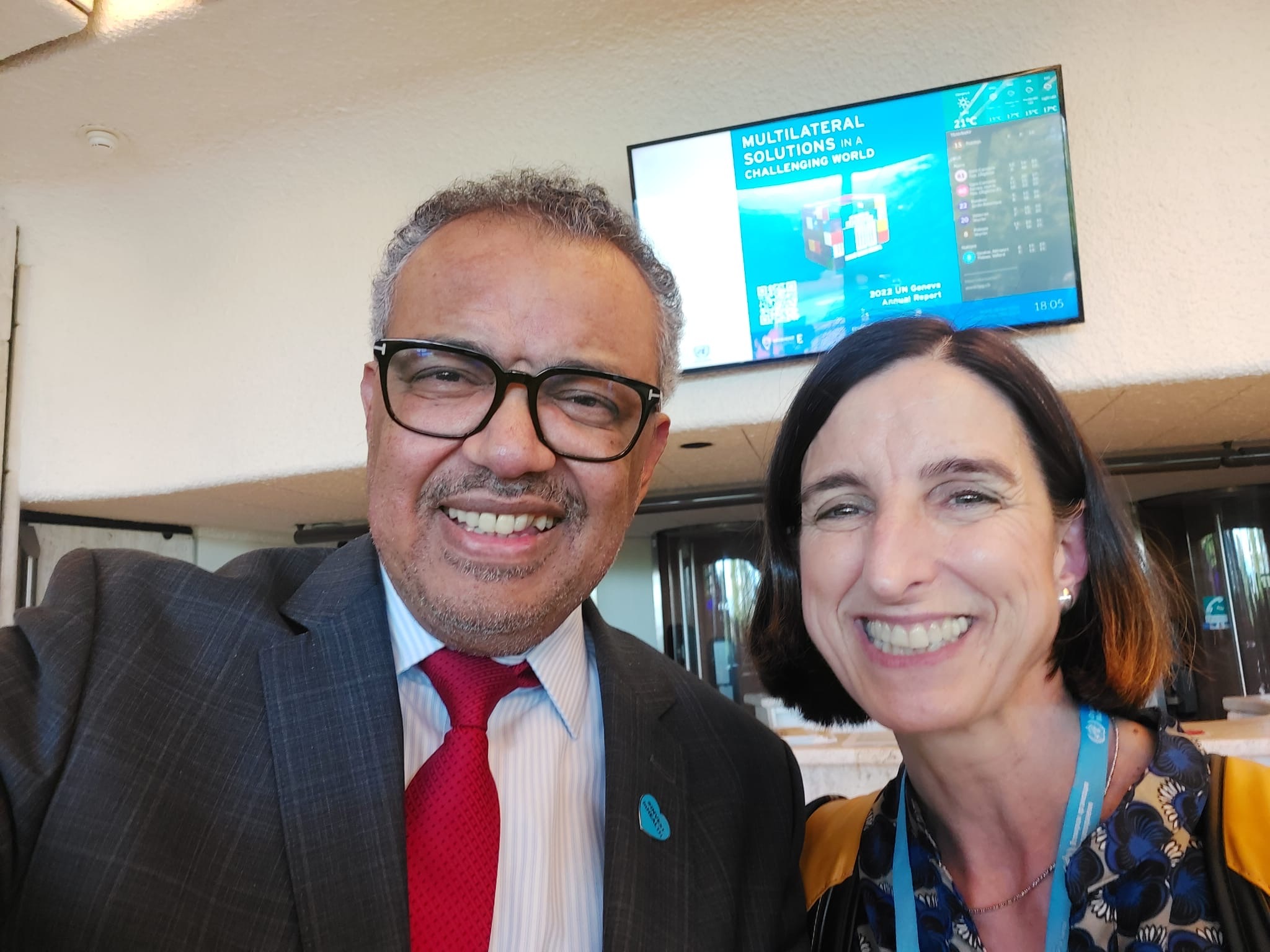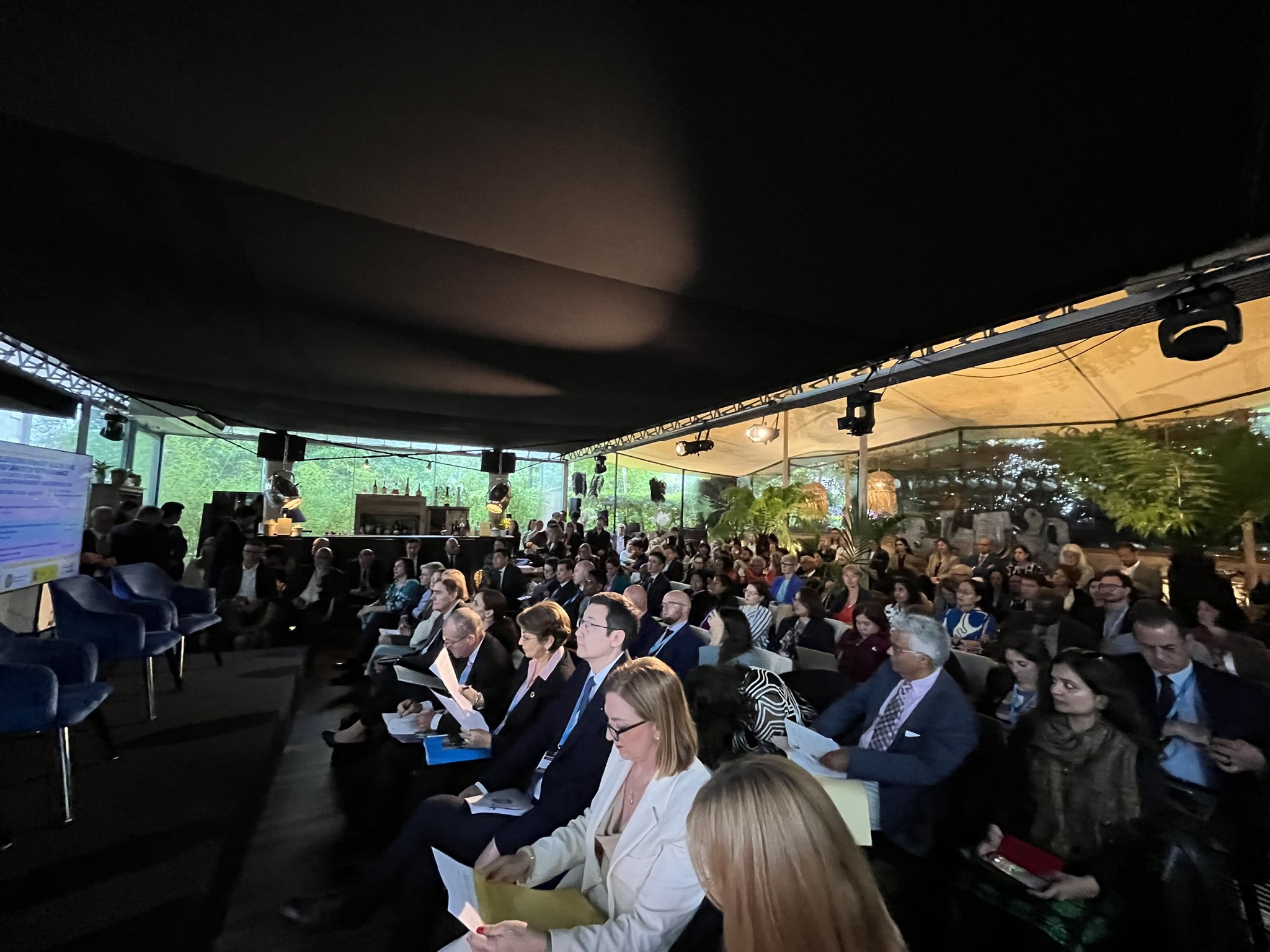WHA77: Accelerating Primary Health Care Transformation with Evidence
WONCA at the World Health Assembly: A Report on Accelerating Primary Health Care Transformation with Evidence

Photo: WHO/Twitter
WONCA at the World Health Assembly: A Report on Accelerating Primary Health Care Transformation with Evidence
By Anna Stavdal, Maria Pilar Astier-Peña, and Harris Lygidakis
Geneva, May 27, 2024 - The World Health Assembly's side event on "Accelerating Primary Health Care Transformation with Evidence" was an inspiring gathering that brought together health leaders from across the globe. The focus was on innovative approaches and the launch of significant initiatives aimed at enhancing primary health care (PHC). As representatives of WONCA, we had the privilege of participating in this high-level meeting.
Event Highlights
Opening Remarks and Key Launches
The event was opened by Dr. Bruce Aylward, Deputy Director-General of the WHO for Universal Health Care. He stressed the urgent need for universal health coverage (UHC), highlighting that 4.5 billion people worldwide still lack access to universal health care, with 2 billion facing financial hardships in paying for health services. This set a powerful tone for the discussions, emphasizing the critical role of PHC in achieving UHC.
We learnt about the proposed PHC coalition, an initiative led by the Government of Kazakhstan. This coalition aims to build political momentum for PHC transformation, facilitate policy advocacy, and promote cross-country experience exchange. Additionally, the launch of the "Implementing the Primary Health Care Approach: A Primer" was significant. This global report combines best practices and formal research to provide a comprehensive guide for policymakers to invest in primary healthcare.
Ministerial Panel Discussion
The ministerial panel featured health leaders who shared their countries' experiences and strategies in PHC.
- Dr. Mónica Garcia Gomez, Minister of Health for Spain, emphasized the strengths of Spain’s decentralized healthcare system and its efforts in digitizing primary healthcare services through telemedicine. She highlighted how decentralization offers diverse learning opportunities for PHC team development, particularly in advanced competencies for nursing and administrative staff.
- Dr. Karina Rando, Minister of Health for Uruguay, discussed Uruguay's strategy to address the mental health crisis. She focused on improving mental health competencies for family doctors and implementing electronic prescriptions for antidepressants to make mental health care more accessible.
- Dr. Haitham Mohamed Ibrahim, Federal Minister of Health for Sudan, underscored the importance of data in healthcare. He called for robust data systems to drive decision-making and improve health outcomes.
- Dr. Hans Kluge, WHO Regional Director for Europe, pointed out that the expansion of Universal Healthcare had stalled. He advocated for expanding urban health, telehealth, big data, AI, and public health. He passionately stated, “Health should be for all, and all should be for health,” emphasizing the need for preventive care and the importance of empathy, trust, health, and happiness in healthcare.
- Dr. Jarbas Barbosa, WHO Regional Director for the Americas, stressed the need for prevention, health promotion, and primary healthcare to achieve UHC. He highlighted the call from many countries for digital hardware and software to support these initiatives.
- Dr. Rana Hajjeh, Director of Program Management for the Eastern Mediterranean region of the WHO, discussed the critical importance of data in healthcare. She emphasized the need for accurate data to support health system planning and emergency responses, especially in regions plagued by emergencies.
Key Insights and Contributions
WHO believes that to enhance and strengthen primary healthcare, it is essential to:
- Explain the importance of primary health care clearly.
- Ensure that primary healthcare is people-driven.
- Develop leadership and financial strategies that are compassionate and empathetic.
Evidence-Based Resources and Learning
The event showcased several WHO evidence-based products and resources. The "Implementing the Primary Health Care Approach: A Primer" and the PHC Country Case Study Compendium were particularly noteworthy. These tools are designed to help countries implement PHC reforms effectively, providing comprehensive evidence and case studies from various countries.
Leadership Course on PHC
The introduction of an 80-hour Leadership Course on PHC was another significant development. Delivered through a digital learning platform, this course aims to equip health leaders with the skills necessary to drive PHC-oriented health system transformations.
Reflections and Future Directions
The event was based on collaborative work with governments from around the world to describe the state of the art of PHC in their countries and identify learning opportunities. The WHO PHC department has started a collaboration with the WHO Europe Office led by Melitta Jakab and the European Observatory on Health Systems and Policies led by Josep Figueras.
As representatives of WONCA, we were inspired by the collective commitment to advancing PHC. The discussions underscored the importance of political will, innovative partnerships, and evidence-based approaches in transforming health systems. The emphasis on integrating public health in primary healthcare, leveraging technology, and empowering communities aligns closely with WONCA’s mission to improve global health through high standards in family medicine.
The event reinforced our belief in the pivotal role of family doctors and PHC teams in achieving UHC. We are committed to supporting initiatives that promote comprehensive, continuous, and people-centered care. The PHC Coalition of Countries offers a promising platform for collaboration, and we look forward to contributing to its goals.
Melitta Jakab, Head of the WHO European Centre for PHC, tweeted, "So happy to see that the idea of the PHC Coalition of Countries is garnering momentum bringing the #PHC4UHC vision closer to reality. First voiced by the Kazakh President @TokayevKZ at our 2023 International PHC Conference in Astana, the Coalition is now ready for action."
In conclusion, the side event at the World Health Assembly was a testament to the global commitment to PHC. It provided valuable insights and tools that will undoubtedly aid in the transformation of health systems worldwide. WONCA remains dedicated to advocating for and implementing effective PHC strategies to improve health outcomes for all.
Anna Stavdal, WHO Liaison for WONCA
Maria Pilar Astier-Peña, WONCA Member at Large
Harris Lygidakis, CEO of WONCA

Spanish Minister for Health, Dr. Monica Garcia, WHO Liaison for WONCA, Anna Stavdal, and WONCA Member at Large, Maria Pilar Astier-Peña

WHO Director-General Tedros Adhanom Ghebreyesus with Maria Pilar Astier-Peña.

Photo: Faraz Khalid